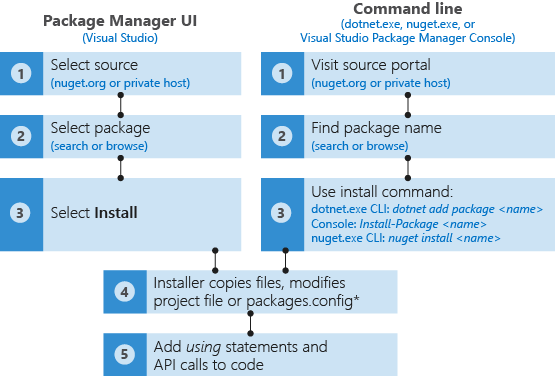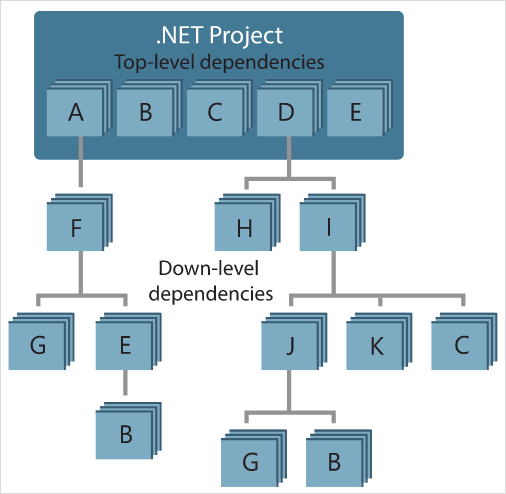Table of Contents
- Introduction
- What Is NuGet?
- Why NuGet Matters for Developers
- NuGet and the Open Source Ecosystem
- How NuGet Supports Software Licensing
- The Role of the Outercurve Foundation
- Benefits of Using NuGet
- Best Practices for NuGet Packages
- NuGet in Modern Development
- Contributing to Open Source Through NuGet
- The Future of NuGet
- Conclusion
Introduction
In the dynamic world of software development, efficiency and collaboration are essential. Developers constantly seek tools that help them reuse existing code, maintain dependencies efficiently, and contribute to a broader open source ecosystem. One such powerful tool is NuGet, a cornerstone of the .NET platform. This article, titled Nuggets de código: Descubre NuGet y su aporte a la comunidad Open Source, explores how NuGet has transformed the way developers share, distribute, and manage code in open source environments.
From simplifying dependency management to empowering open collaboration, NuGet represents far more than just a package manager—it’s an ecosystem that encourages sustainable and transparent software practices. Whether you are an experienced .NET developer or a newcomer to open source, understanding NuGet’s role is key to modern development success.
What Is NuGet?
NuGet is the official package manager for Microsoft’s .NET ecosystem. It provides a central repository of reusable code packages that can be integrated into any .NET application. These packages may contain compiled libraries (DLLs), scripts, and configuration files—all designed to make development faster and more consistent.
The term “NuGet” comes from the idea of providing “nuggets” of reusable code, which aligns perfectly with our focus keyword Nuggets de código: Descubre NuGet y su aporte a la comunidad Open Source. Each “nugget” represents a small, valuable piece of software that can be easily shared and reused by developers worldwide.
NuGet simplifies a developer’s workflow by automating version control, dependency resolution, and updates, ensuring that projects stay synchronized with the latest package releases without manual overhead.
Why NuGet Matters for Developers
Before NuGet, developers had to manually manage dependencies, download external libraries, and handle version conflicts on their own. This process was time-consuming and prone to errors. NuGet changed this paradigm completely.
- Automated Dependency Management: NuGet automatically installs and updates dependencies when a package is added or removed from a project.
- Version Control: Developers can specify exact or compatible versions of packages to ensure stability.
- Community-Driven Packages: Thousands of contributors worldwide maintain NuGet packages, ensuring reliability and open collaboration.
With over 350,000 unique packages hosted on nuget.org, NuGet has become an indispensable part of the .NET ecosystem and a vital tool for developers working on open source and enterprise projects alike.
NuGet and the Open Source Ecosystem
NuGet is deeply intertwined with the open source movement. Many packages available on NuGet are open source projects, meaning developers can not only use them but also inspect, modify, and contribute to their source code. This collaborative model fosters innovation and transparency.
Through its integration with GitHub and other repositories, NuGet provides a seamless bridge between code sharing and package distribution. For instance, a developer can create an open source library, host it on GitHub, and publish it as a NuGet package for others to consume—creating a feedback loop of contribution and improvement.
According to the principles of Open Source Software Licenses, NuGet packages can be distributed under various licenses such as MIT, Apache 2.0, or MS-PL. This ensures that developers have the freedom to use, modify, and distribute software responsibly.
How NuGet Supports Software Licensing
Licensing is a critical aspect of open source collaboration. NuGet provides metadata fields that allow package creators to clearly specify their license type. This transparency helps developers understand the legal terms before integrating a package into their projects.
For example, a package may include a “license expression” such as MIT or Apache-2.0 in its metadata. NuGet’s license feature ensures that developers can easily see this information in Visual Studio or via the NuGet CLI.
This approach aligns perfectly with the mission of the Outercurve Foundation, which promotes open collaboration under clear and permissive licensing models. Outercurve has long advocated for frameworks that balance innovation, transparency, and compliance—values that NuGet embodies at its core.
The Role of the Outercurve Foundation
The Outercurve Foundation, originally founded as the CodePlex Foundation, has been instrumental in promoting open source collaboration in the Microsoft ecosystem. By supporting projects like NuGet, it created a neutral space where developers and companies could collaborate without proprietary restrictions.
Outercurve’s mission is to enable software communities to flourish by providing governance, licensing, and legal support. This aligns with NuGet’s goal of creating a transparent environment where developers can contribute to open source with confidence and clarity.
In many ways, NuGet’s success story is a reflection of Outercurve’s broader vision: connecting innovation with openness.

Benefits of Using NuGet
NuGet offers numerous advantages that extend beyond simple package management. Here are some of the most important benefits:
- Efficiency: Install and update libraries with a single command.
- Reliability: Packages are verified and version-controlled to prevent conflicts.
- Collaboration: Encourages teamwork and shared development practices.
- Transparency: Open source packages allow full code inspection.
- Security: Official NuGet feeds include integrity checks and malware scanning.
These features collectively contribute to the open source spirit described in our keyword focus: Nuggets de código: Descubre NuGet y su aporte a la comunidad Open Source.
Best Practices for NuGet Packages
To ensure high-quality contributions to the community, developers should follow best practices when creating and publishing NuGet packages:
- Use Semantic Versioning: Always version packages correctly (e.g., 1.0.0 → 1.1.0 → 2.0.0).
- Include Proper Metadata: Add clear descriptions, authors, and license information in the
.nuspecfile. - Test Thoroughly: Ensure your library works with multiple versions of .NET and frameworks.
- Document Everything: Provide README files, sample code, and API documentation.
- Engage with the Community: Respond to issues and pull requests actively.
Following these practices ensures that NuGet remains a trusted and powerful open source ecosystem.
NuGet in Modern Development
Today, NuGet is not only used in traditional .NET Framework projects but also plays a critical role in .NET Core, .NET 6, and .NET 8 environments. It integrates with CI/CD pipelines, cloud services, and containerized deployments through Docker and Azure DevOps.
Modern teams use NuGet to automate dependency updates, manage internal package feeds, and enforce code quality standards. This makes it an essential part of DevOps workflows and continuous delivery systems.
NuGet’s adaptability and open design ensure that it will continue to thrive in future development paradigms, including AI-driven coding environments and cross-platform frameworks like MAUI and Blazor.

Contributing to Open Source Through NuGet
NuGet provides one of the easiest ways to contribute to open source. Developers can publish their libraries to nuget.org, making them instantly available to millions of users. Each package acts as a “nugget” of knowledge and functionality that benefits the global community.
If you want to contribute, start small. Fix a bug in a NuGet package, improve documentation, or release a utility you’ve built for your own projects. The NuGet publishing guide is a great place to begin.
By contributing, you not only help others but also enhance your skills, portfolio, and reputation as a developer—embodying the true spirit of open source collaboration promoted by Outercurve Foundation.
The Future of NuGet
As software development continues to evolve, NuGet is set to play an even more integral role in enabling modular, interoperable, and secure code ecosystems. With growing adoption of .NET 8, containerization, and AI-driven development tools, NuGet packages are expanding beyond libraries into domains like data science, DevOps, and machine learning.
The emphasis on transparency and licensing will remain critical. The continued involvement of organizations like Outercurve ensures that open collaboration stays at the heart of innovation.
Looking ahead, we can expect NuGet to offer enhanced security scanning, smarter dependency resolution, and tighter integration with GitHub Actions and Azure Pipelines—making it the backbone of future-ready .NET projects.
Conclusion
NuGet is more than a tool—it’s a movement. By transforming how developers share and manage code, it strengthens the foundation of open source collaboration across the world
Supported by initiatives like the Outercurve Foundation, NuGet exemplifies the best of what open source can achieve—efficiency, transparency, and empowerment through shared innovation.
As the open source landscape continues to expand, NuGet will remain a key pillar of the .NET ecosystem, ensuring that developers can build, collaborate, and innovate together with confidence.
